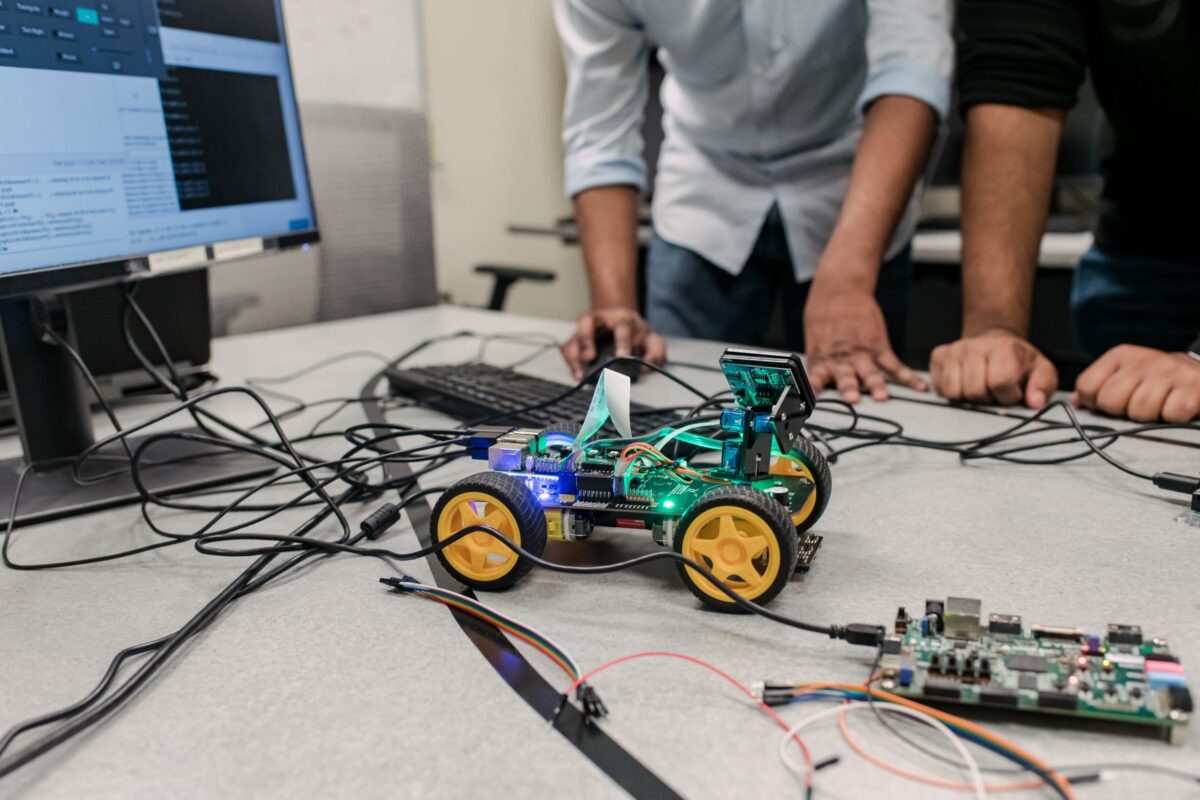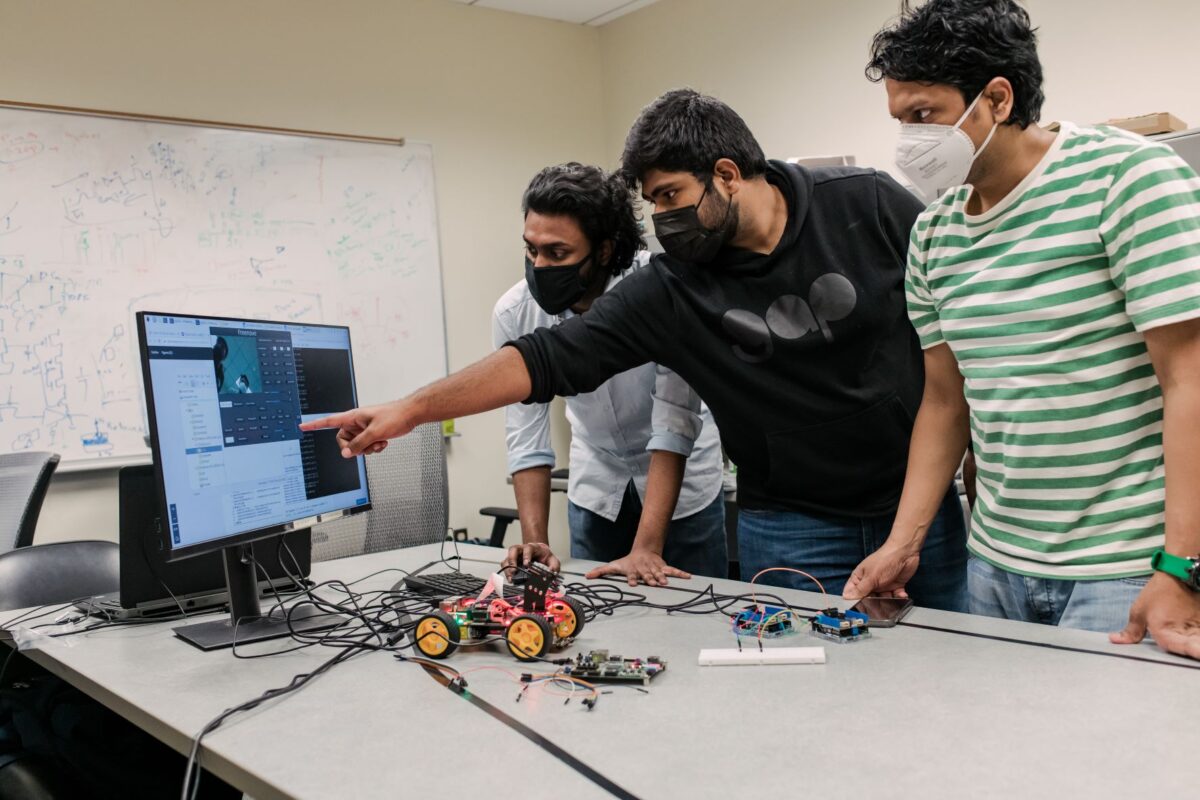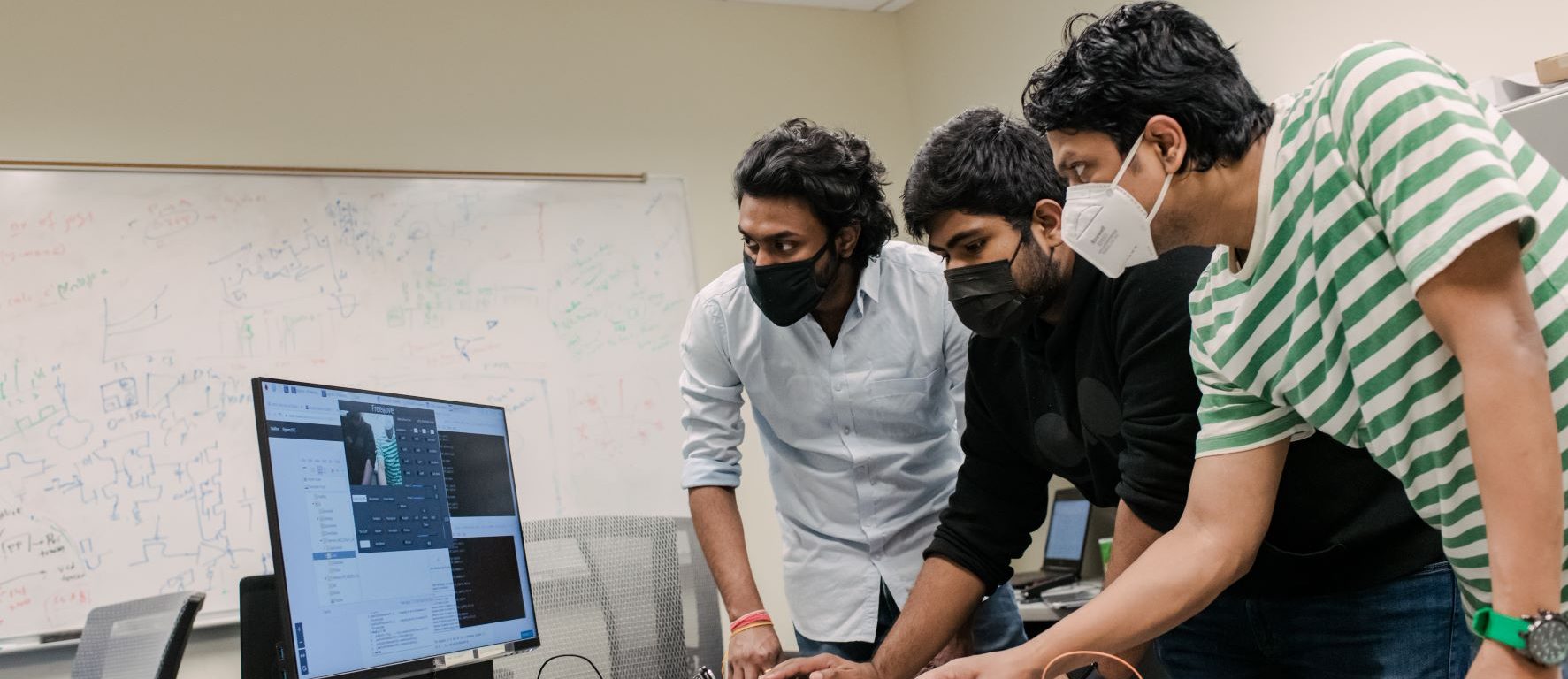As vehicles become more advanced, opportunities increase for hackers to remotely attack their embedded systems, creating significant safety concerns for drivers and passengers. Riadul Islam, assistant professor of computer science and electrical engineering at UMBC, received a $200,000 grant from the National Science Foundation to study how to better detect and protect against these cyber attacks.

Today’s cars include complex electronic systems that interact and communicate with each other in order to operate properly. For example, steering and braking systems rely on internal communications and must also effectively communicate with other systems and networks in the vehicle to function properly.
Issues arise when communications between systems are interrupted, or when external players intentionally hack into these systems. “Remote attacks can jam the communication systems,” Islam explains, which can pose dangers.
Improving safety
To detect potential issues that can put people at risk, Islam and his team are developing data graphs that chart out messages and signals among a vehicle’s systems. They will next build an attacker detection algorithm based on that analysis.

This approach to detecting attacks will fundamentally change how people can analyze the enormous amount of data that modern vehicles generate. And it’s essential that people become more aware of this data and start to manage it, says Islam. He explains that vehicles with advanced driver-assistance systems, more common today than ever before, are more vulnerable to being hacked. “Anyone can take over a car remotely,” he says. “It’s a huge safety concern.”
Boosting public confidence in autonomous cars
Dhandeep Challagundla ‘22, computer engineering, and Sri Ranga Sai Krishna Tummala, M.S ‘25, computer science, are working alongside Islam on this research. Challagundla is primarily working on energy-efficient computing, while Tummala is building a testbed for collecting sensor data from vehicular networks.
“Vehicular security is the primary key to maintaining the integrity of the automated driving systems, which can significantly boost public confidence in future autonomous cars,” explains Tummala.

This research will also integrate novel neural architectures to manage humongous data generated by vehicle electronic control units and provide real-time training and inference platform to tackle unknown issues, says Islam.
Detecting and classifying images
In addition to the funding from NSF, Islam received funding through the Maryland Innovation Initiative (MII), and from the Maryland Industrial Partnership (MIPS). He is collaborating with Ryan Robucci, associate professor of computer science and electrical engineering, and industrial partner Oculi on a project funded by the MIPS.
Their work will focus on developing algorithms that allow cameras to more accurately detect and classify images. Through this work, Islam and Robucci are working to create a software platform to support the design of an energy-efficient spiking neural network that can be implemented in conventional vision sensors.
“Both the MII and MIPS research will directly impact Maryland’s economy,” explains Islam. “The MII research will also improve the security of our transportation systems, and MIPS will concentrate on energy-efficient imaging considering public safety and privacy.”
Banner image: Dr. Riadul Islam, right, in the lab with students. All photos by Marlayna Demond ’11 for UMBC.

